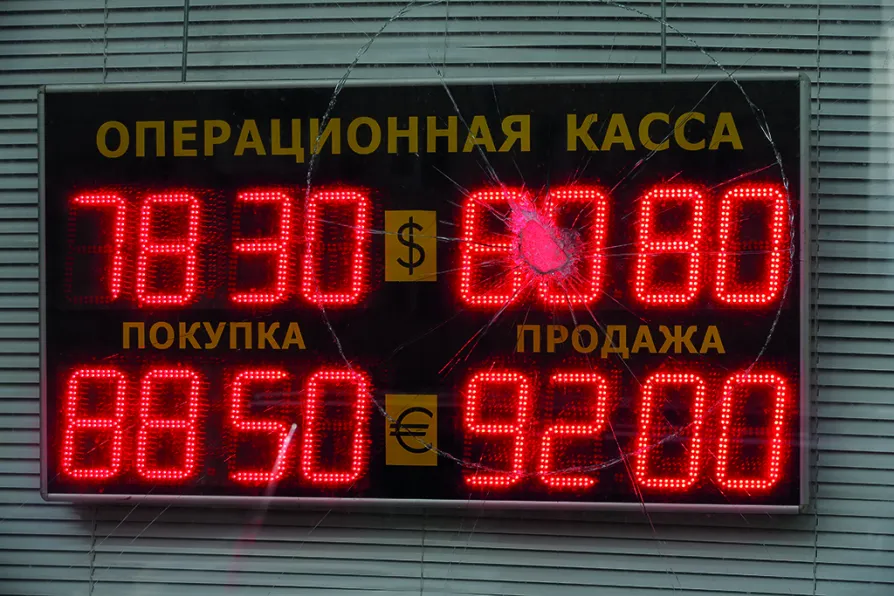CHRISTOPHE DOMEC speaks to CHRIS SMALLS, who helped set up the Amazon Labor Union, on how weak leadership debilitates union activism and dilutes their purpose


SCENES from Moscow and other Russian cities over the last 24 hours suggest the initial stages of a bank run, whilst the rouble fell almost 40 per cent in early trading as East Asian markets have opened. This was the intended result of the economic sanctions announced by European powers, Canada and the US, subsequently joined by Japan, over the weekend.
The sanctions are measures of an unusually severe degree, threatening potential economic devastation, but the major mechanism they use have been road-tested over the last decade of economic crisis and disorder.
The economic blow from central bank sanctions on Russia will remain exceptionally severe. Bank of Russia will likely find that capital controls and dramatic interest rate hikes are what it relies on to try and defend the rouble and thus its banking system.
Oligarchs and messaging systems

In the first half of a two-part article, PETER MERTENS looks at how Nato’s €800 billion ‘Readiness 2030’ plan serves Washington’s pivot to the Pacific, forcing Europeans to dismantle social security and slash pensions to fund it

Trump’s economic adviser has exposed the actual strategy: forcing other countries to provide financial support for US hegemony











